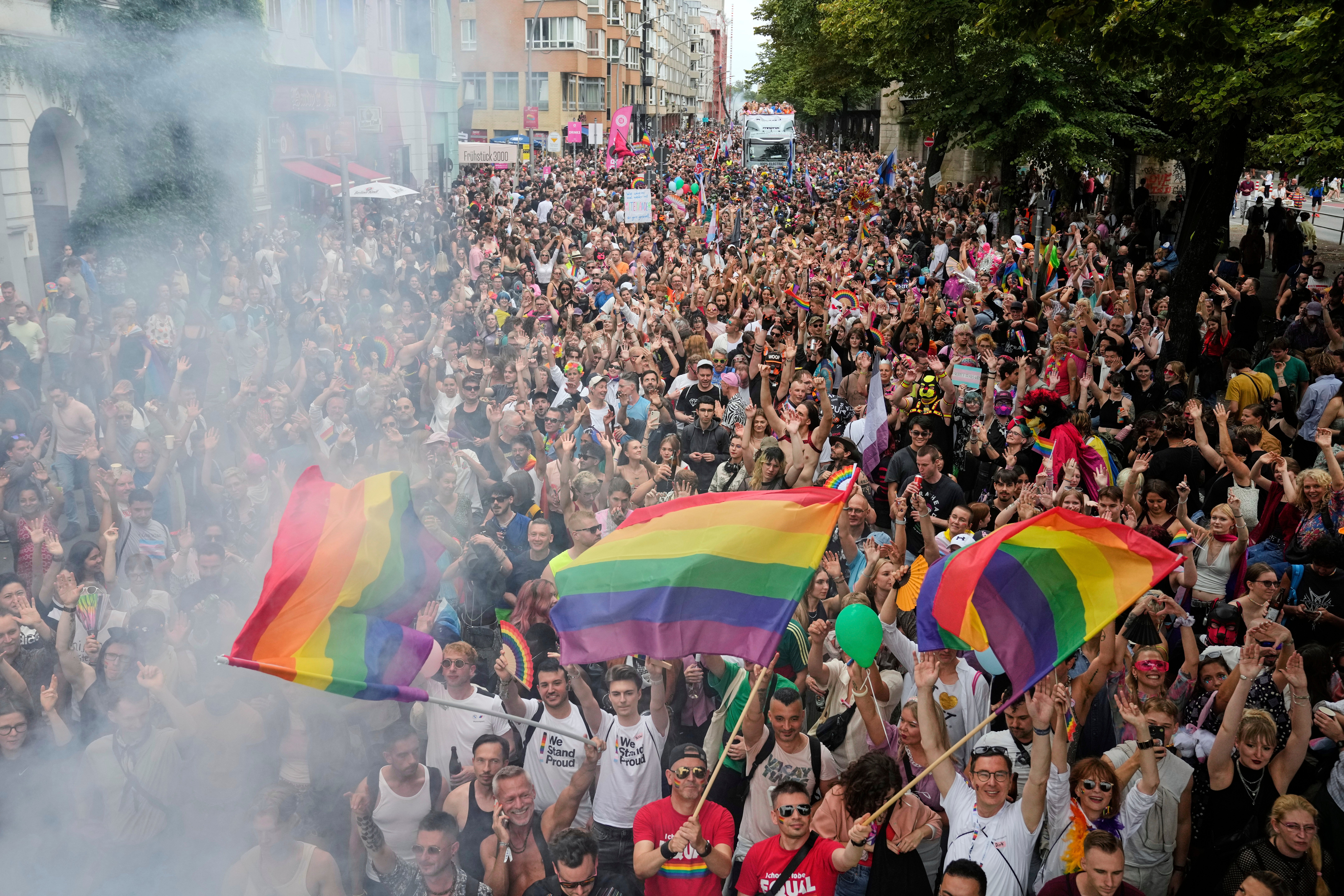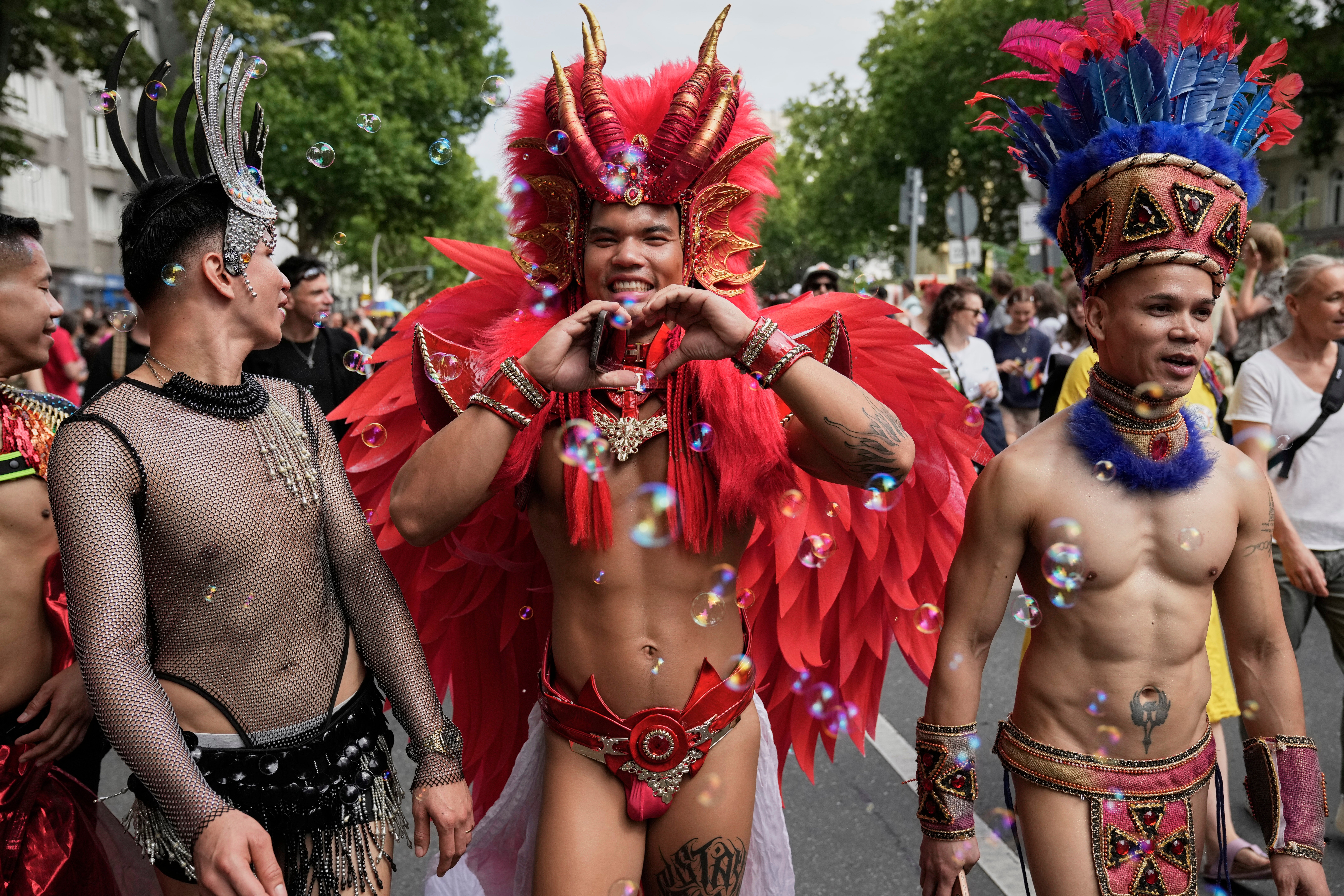A neon sign proudly proclaiming “QUEER AND FRIENDS” inside the trendy Das Hoven cafe in Berlin was intended to signify a safe space for LGBTQ+ individuals. However, this beacon of inclusivity has now become a magnet for hate and homophobic attacks.
Owner Danjel Zarte has revealed there are 45 pending criminal investigations linked to the establishment over the past 18 months. These incidents range from verbal and physical assaults on patrons and workers to property damage, including broken windows, defacement with faeces, and swastika graffiti. One individual was even seen brandishing a gun outside the premises.
“An act of terror,” Zarte said. “I sometimes have panic attacks in the morning and am afraid to look at my cell phone because I’m afraid that something has happened again.”
Attacks against queer people and gay-friendly establishments are rising across Germany, including in Berlin, a city that has historically embraced the queer community.
Last year, there was a 40% increase in violence targeting LGBTQ+ people in 12 of Germany’s 16 federal states as compared to 2023, according to the Association of Counseling Centers for Victims of Right-Wing, Racist and Antisemitic Violence.

Activists say those figures only show a fraction of the probem’s scope because victims are often afraid to come forward. They partly blame the rise of the far-right across Europe, including in Germany where the Alternative for Germany party made significant gains in the February election.
Hostility toward LGBTQ+ people serves as a “rallying cry” for believers in right-wing extremism, according to Judith Porath, the association’s managing director. Experts have seen an increase in demonstrations and violence among neo-Nazis, most of whom are young men.
Bastian Finke, the head of MANEO, an organization tracking anti-gay violence in the capital city, said those who are openly queer on Berlin’s roads “automatically run a very, very high risk simply because of who they are. To be attacked, to be insulted, to be spat on. We have these scenarios every day.”
The fear was palpable at Saturday’s Christopher Street Day parade in Berlin. The annual Pride event commemorates the 1969 Stonewall rebellion in New York City, when a spontaneous street uprising was triggered by a police raid on the Stonewall Inn gay bar on Christopher Street in Greenwich Village.
“The mood is actually tense: People are afraid, they are unsettled,” Thomas Hoffmann, a member of the event’s executive board, said Saturday.

Hundreds of thousands of people showed up for the celebration, dancing to techno beats as they marched to the iconic Brandenburg Gate.
“That is really a powerful, wonderful sign for more equality,” Hoffmann added.
Hoffmann and others have long wanted German lawmakers to amend the constitution to explicitly include the legal protection of queer people from discrimination based on gender identity. But that looks unlikely to become a political priority.
For Zarte, the stress of hate crimes and politics is nonstop, except during the Christopher Street Day parade, which always brings him to tears.
“It is very moving to feel completely accepted once a year,” he said.




